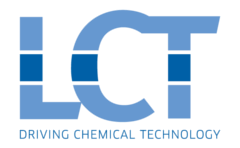Postdoctoral researcher: Mechanical and Thermochemical Recycling of mixed plastic waste
Aim
Evaluate the role of impurities in plastic waste on the obtained products using advanced experimentation and model feeds in an integrated team of researchers.
Context
Plastics are a key material within the circular economy. Their broad diversity in terms of composition and processing techniques allows them to be used in a great variety of efficient applications. However, it is exactly this diversity that makes them challenging at end-of-life. The most common approach towards reprocessing plastic is mechanical recycling in which thermoplastics are recycled towards other plastic applications. This has many advantages and can result in closed-loop/cradle to cradle recycling. Complex input materials such as mixed and contaminated plastics, however, typically result in open loop recycling/downcycling towards ‘lower grade’ products. For many additives and auxiliary materials or residual fractions (e.g. 0.1-1% of PVC) from other pretreatment steps, no ‘easy’ separation technology is available. Therefore, an extruder is considered as a feeding setup. More than just a feeding device, such an extruder could be considered as a pre-treatment stage. A correct choice of temperature and shear profiles, along with screw configuration and placement of venting, could enable the devolatilisation of moisture, halogens - which are harmful to the reactor setup if not removed - and organic contaminations. Such devolatilisation is expected to be a complex process, as no literature is available for mixed solid plastic waste on what will happen to which component during such pre-treatment.
Program
A number of tasks will be executed in the matter project:
1. Detailed characterisation of the feedstock and overview of impurities
2. Prioritisation of impurities to be tested
3. Development of a (thermal) pretreatment prior to thermochemical decomposition (increasing throughput and impurity extraction)
4. Possible problems and acceptance thresholds for mechanical and thermochemical recycling
Therefore, the MATTER project partners will perform research on the benefit of this pretreatment on two tracks. First a ‘testing’ extruder will be installed at the beginning of the project that serves to analyse the devolatilisation dynamics of solid plastic waste in an extruder. Secondly, a basic extruder will be used on which a number of experimental tests will be performed directly linked to the micro pyrolysis setup available at LCT to evaluate Cl removal.
